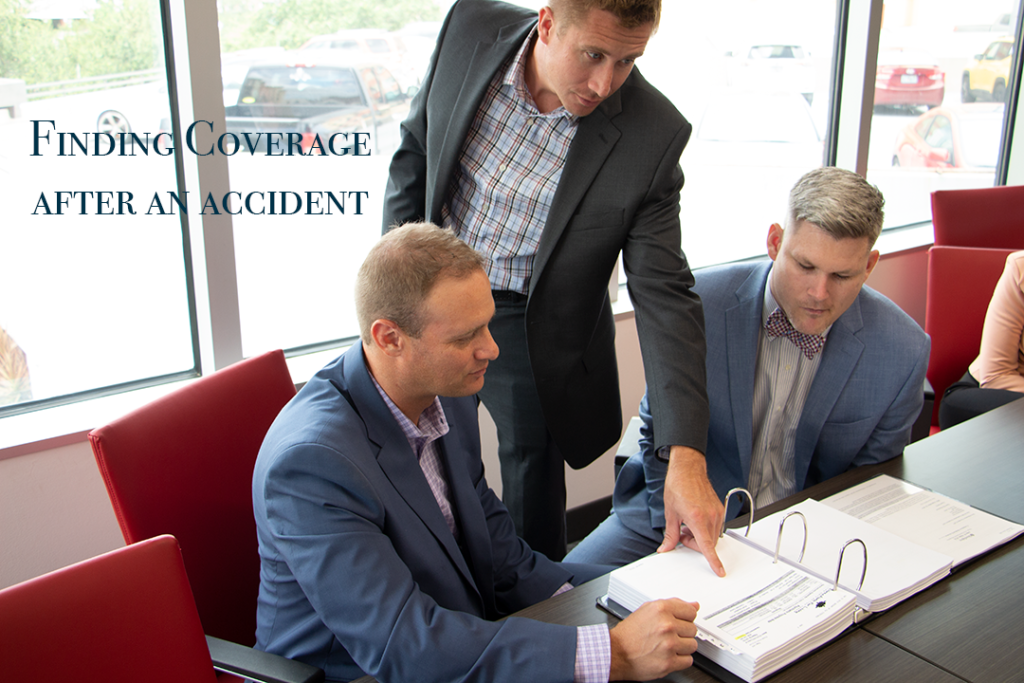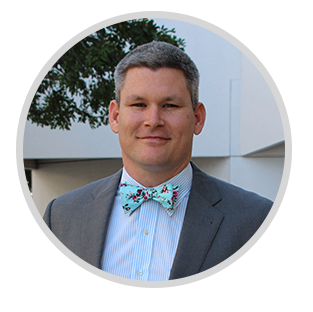Finding Insurance For An Accident When There Appears to Be No Coverage
October 29, 2019
Personal injury attorneys seek to recover insurance money for people who have been injured by the negligence of others. For a number of reasons, we generally do not attempt to recover money from the at-fault party personally. Simply put: no insurance, no case. This article explores some important features of Florida law which can result in substantial insurance coverage being afforded where there initially appeared to be none.

Invalid UM Selection/Rejection Forms
Uninsured/Underinsured Motorist (“UM”) coverage compensates you, your family, and the occupants of your vehicle, for damages caused by the negligence of others if the at-fault driver(s) cannot be found, do not have any insurance, or do not enough insurance. As a personal injury attorney, I cannot stress enough that UM insurance is extremely important. The Florida Legislature agrees, and has created a statutory framework that promotes UM coverage. This is because the tax payers bear the cost of medical treatment and financial assistance when injured motorists fail to self-insure.
Default Rule: Stacked UM Equal to BI Coverage
Under Florida law, if an insured purchased Bodily Injury (“BI”) coverage, the default rule is that they are afforded the same amount in stacked UM coverage. In other words, the baseline presumption is that someone who purchased insurance to cover the injuries of others (BI) would also want to secure as much insurance for their own damages (UM).
Requirements to Reject or Select Less Than Stacked UM at BI Limits
Insurance companies can sell policies which deviate from the general rule, but they must adhere to a number of strict statutory requirements designed to ensure that insureds make informed and knowing decisions about UM coverage. Section 627.727(1), Florida Statutes, lays out the four independent and mandatory requirements for an insured to select UM coverage at less than their BI limits or to reject UM coverage. Similarly, Section 627.727(9) addresses the mandatory prerequisites to select unstacked UM coverage. Essentially, to deviate from stacked UM in the same amount as the BI coverage, an insurance company must show that it:
- Gave the insured written notice explaining UM coverage;
- Explained to the insured that the UM coverage is equal to the BI limits unless lower UM limits are selected;
- Utilized a UM Selection/Rejection Form approved by the Office of Insurance Regulation; and
- Included the following disclaimer as the form heading in 12-point, bold font: “You are electing not to purchase certain valuable coverage which protects you and your family or you are purchasing uninsured motorist limits less than your bodily injury liability limits when you sign this form. Please read carefully.” Additionally, the otherwise compliant form must be signed by a named insured.
Strict Compliance
Florida courts require strict compliance with these mandatory provisions. In GEICO vs. Perez, (Fla. 3rd DCA 2018) Florida’s Third District Court of Appeals invalidated a GEICO UM Selection/Rejection Form which failed to track the precise language notice provision listed in (4) above. Specifically, the offending form said “BODILY INJURY LIMITS,” instead of “BODILY INJURY LIABILITY LIMITS,” and “PLEASE READ IT CAREFULLY” instead of “PLEASE READ CAREFULLY.” Even though Perez had not paid for premiums for UM coverage, and the form had been approved by the Florida’s Department of Insurance Regulation and otherwise properly informed the insureds on the importance of UM coverage, the Court in Perez held that it was invalid as it failed to contain the mandatory statutory language. As the policy in question had $50,000 in BI coverage and covered three vehicles, this ruling opened the door to at least $150,000 in UM coverage where before there had been none.
Warning Must Be on Signature Page; Selection/Rejection Cannot Be Oral
In Jervis v. Geico, (Fla. 4th DCA 2018), the Fourth District Court of Appeals approved a trial court order which invalidated a GEICO UM Selection/Rejection Form which had the required warning or notice sentence on a different page than where the insured signed. The form had the notice sentence as the heading of page one, but the signature page (page 3) did not have the required language. The Court held that GEICO completely failed to provide the required notice, and therefore could not argue that the insured orally made a knowing selection of non-stacked UM coverage. As a result, the 4th DCA required the trial court to enter an order entitling Jervis to stacked UM coverage.
Pre-Selected Forms Are Invalid
Customers often call insurance companies for quotes on premiums. Eager sales people quote cheap premiums on barebones policies that do not provide UM coverage. Upon agreeing to pay the low premium, customers then receive an e-mail which, in part, requires them to electronically sign a UM Selection/Rejection Form. As selecting any other option would increase the agreed-upon premium, the forms are already filled out and reject UM coverage. The problem is that by the time these insureds are provided notice on the importance of UM coverage, they cannot change the selection, but can only passively accept the rejection of UM coverage or cancel coverage. The 4th DCA in Jervis approved the trial court’s rejection of this practice, which perversely inverted the presumption of stacked UM coverage equal to the BI limits.
In addition to maximizing opportunities to secure coverage to compensate clients for their injuries, knowing how to attack UM Selection/Rejection Forms and finding any coverage also opens the door to bad faith claims.
If you or a loved one has been injured in a car crash, call me, Attorney John McKnight, with Pipas Law today at (813) 817-2729 for a free, confidential consultation.

SITE CREDIT
PRIVACY POLICY
© COPYRIGHT 2017-2024 PIPAS LAW GROUP | ALL RIGHTS RESERVED
What is the typical timeline of a personal injury case?
Who Pays For Car Repairs After An Accident In Florida?
Why Tampa Car Accident Cases Rarely Go To Trial
popular BLOGS
360 Central Avenue Suite 1570 St. Petersburg, Florida, 33701
Ph: 727-888-3925
Fax : 727-258-0082
MAIN OFFICE
Dade City | Zephyrhills | Port Richey | Trinity | Riverview | Tampa | Lakeland Bradenton | Sarasota | Orlando | Lutz Clearwater | Brandon | Saint Petersburg| Wesley Chapel | Apollo Beach | Largo | Brooksville | Spring Hill | Palm Harbor | Gainesville | Ocala
AREAS SERVED
PIPAS LAW GROUP
SCHEDULE A FREE CONSULTATION
Gainesville office